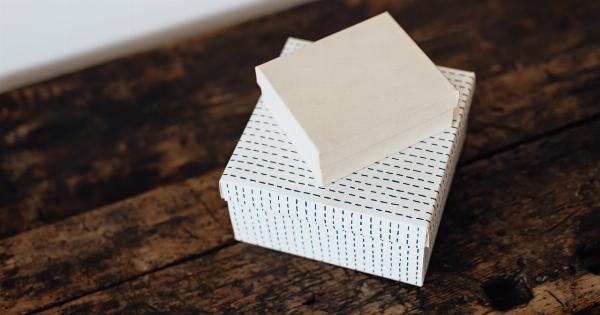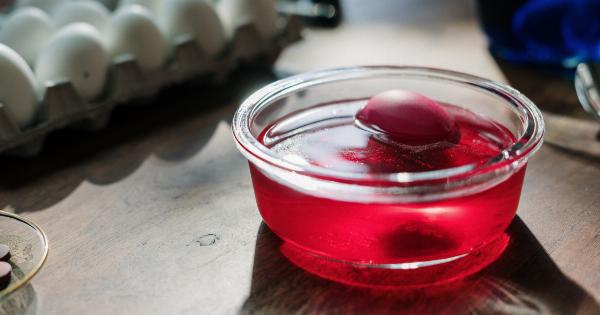Easter eggs are a popular treat enjoyed across the world. They are usually made from chocolate or confectionery and come in a variety of sizes and shapes. However, the question of how long Easter eggs last has been a topic of debate for many years.
In this article, we explore the safe shelf life for Easter eggs.
Factors affecting shelf life
Several factors can affect the shelf life of Easter eggs. These include:.
- The type of chocolate used
- The storage conditions
- The presence of any fillings or additives
- The packaging
Type of chocolate used
The type of chocolate used to make the Easter egg is an important factor affecting its shelf life. Milk chocolate Easter eggs, which are the most common, typically have a shorter shelf life compared to dark chocolate Easter eggs.
This is because milk chocolate contains a higher percentage of sugar and milk solids, which can make the chocolate go rancid more quickly. Dark chocolate, on the other hand, typically contains a higher percentage of cocoa solids and a lower percentage of sugar, which make it less prone to going rancid.
Storage conditions
The storage conditions of Easter eggs are another important factor affecting their shelf life. Easter eggs should be stored in a cool, dry place away from direct sunlight.
Exposure to heat or light can cause the chocolate to melt or bloom (develop white spots on the surface). This can affect the texture and flavor of the chocolate and shorten its shelf life.
Presence of fillings or additives
Easter eggs may contain a variety of fillings or additives, such as nuts, caramel, or fruit. These can affect the shelf life of the Easter egg.
Fillings that contain moisture can cause the chocolate to become soft or sticky, which can shorten its shelf life. Additionally, some additives, such as fruit, may contain natural acids that can cause the chocolate to go rancid more quickly.
Packaging
The packaging of an Easter egg can also affect its shelf life. Easter eggs should be stored in their original packaging or in an airtight container.
This can help prevent the chocolate from absorbing moisture and odors, which can affect its flavor and texture.
Safe shelf life for Easter eggs
The safe shelf life for Easter eggs varies depending on the factors mentioned above. As a general rule, Easter eggs should be consumed within six months of their production date.
However, this can vary depending on the type of chocolate used, the storage conditions, and the presence of any fillings or additives. It is always best to check the packaging for any specific instructions or best before dates.
What happens if you eat an expired Easter egg?
Eating an expired Easter egg is unlikely to cause any serious harm. However, the chocolate may have gone rancid or developed an off-flavor, which can make it unpleasant to eat.
Additionally, if the Easter egg contained any fillings or additives, these may have spoiled or become unsafe to eat. It is always best to err on the side of caution and discard any expired Easter eggs.
Tips for storing Easter eggs
To ensure that your Easter eggs last as long as possible, follow these tips:.
- Store Easter eggs in a cool, dry place away from direct sunlight
- Keep them in their original packaging or in an airtight container
- Avoid storing Easter eggs in the fridge or freezer, as this can cause the chocolate to become damp or develop condensation on the surface
- Avoid touching the chocolate with your hands, as the oils in your skin can cause the chocolate to bloom or develop white spots
Conclusion
Easter eggs are a delicious treat enjoyed by many around the world.
To ensure that your Easter eggs last as long as possible, it is important to consider the type of chocolate used, the storage conditions, the presence of any fillings or additives, and the packaging. Remember to always check the packaging for any specific instructions or best before dates, and to store your Easter eggs in a cool, dry place away from direct sunlight.


























